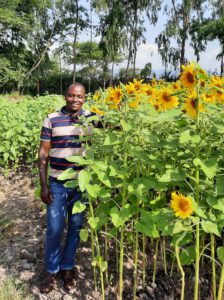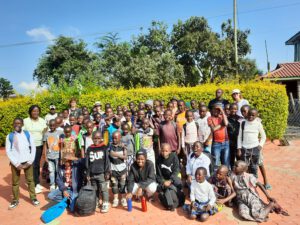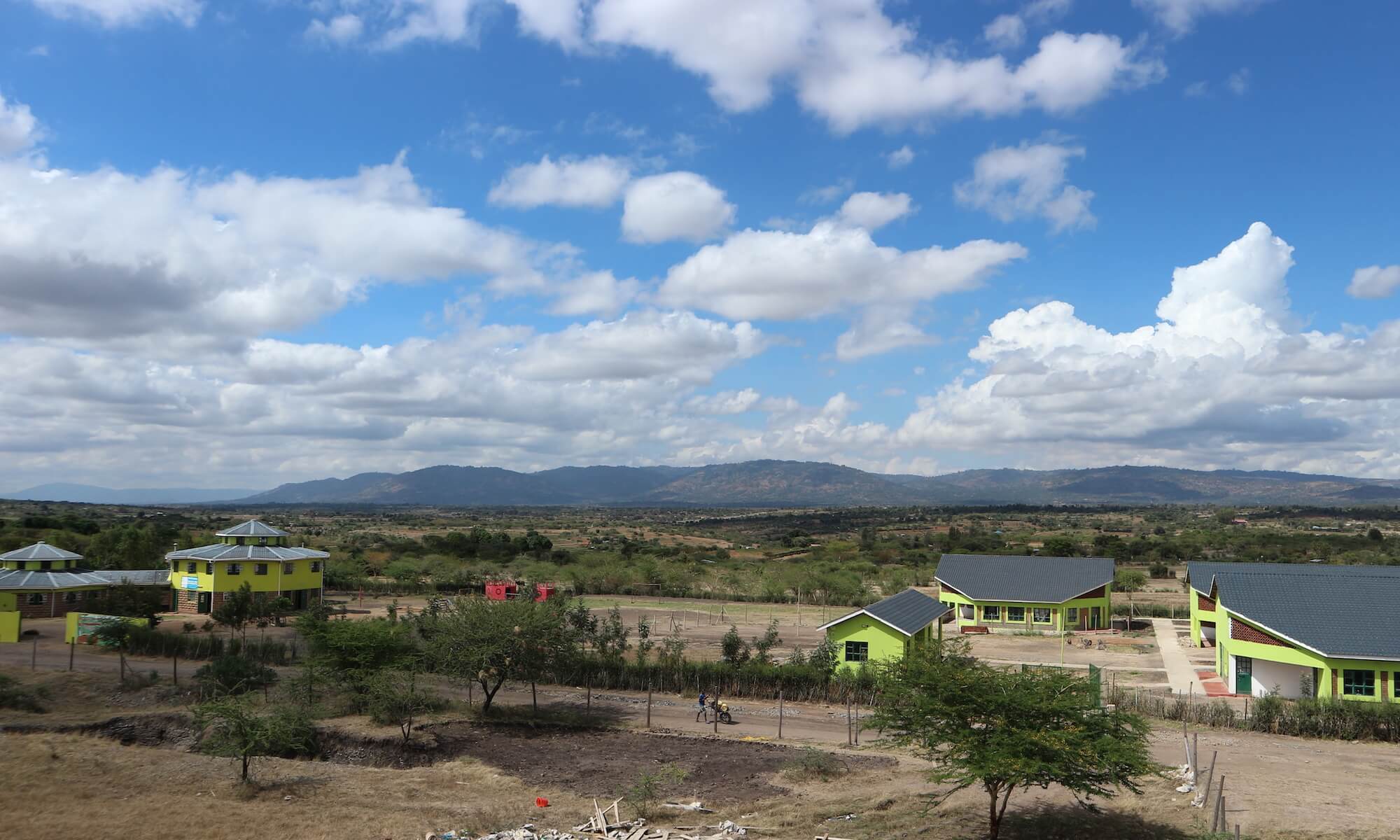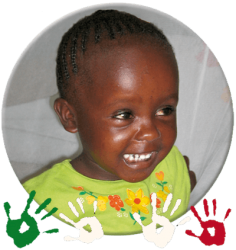 Michael Kakuyu , although his father sold a piece of land, it was not enough for him to go to school. Michael Kakuyu, now 31, fought for his education. Walking an hour to school and back every day was the least of his problems. Without his mentor Jimmy Kilonzi, whom he met almost 15 years ago, and without the support of a sponsor from Germany, he would not be where he is today.
Michael Kakuyu , although his father sold a piece of land, it was not enough for him to go to school. Michael Kakuyu, now 31, fought for his education. Walking an hour to school and back every day was the least of his problems. Without his mentor Jimmy Kilonzi, whom he met almost 15 years ago, and without the support of a sponsor from Germany, he would not be where he is today.
Michael, you are the interface between MCC, Primary School, Secondary School and Skills Centre. Not forgetting agriculture, Shamba. Please describe your job.
I started as manager of the MCC in 2015. Since then, we have grown steadily. The first class at the Secondary School opened in 2019. As manager, I was responsible for the finances of the home and the school from then on. I wrote all the reports and conducted interviews. Every project came across my desk. At the moment, I spend three days a week at the MCC and two days at the Skills Centre.
What makes the Maisha Mazuri Children Centre so special?
Our vision is to educate the children to become creative, imaginative and responsible young people. Young people who, in the best case scenario, will not only stand up for themselves but also for others. The most important thing is that they should be happy and satisfied. We currently offer everyone a basic education, support families with bureaucratic matters and actively look after everyone’s health. With knowledge and, of course, money; money for necessary medication too. We are there for all everyday problems. We also support the families with budget plans, because our aim is for them to be economically stable.
This also includes the goat, duck and rabbit project. What is that?
Many households receive animals from our “live stock”, e.g. a goat or a rabbit, which is intended to strengthen families economically. The family can eat the goat themselves, or even better, breed their own small stock of animals and then sell individual animals back to the MCC and thus feed them back into the economic cycle. However, they may only be sold to the MCC and not outside. Another component is that we want to teach the parents about organic farming. They come here and are trained by our organic farmer. They are all open to the idea. It’s time-consuming and expensive at the beginning, but it pays off over time.
Your greatest joy on the job?
There is nothing better than helping a child who comes to the MCC full of worries to become happier and more determined. I love talking to the children and engaging with them. With us, everything is possible for every child.
What was your own childhood like?
I come from a very poor background. Now I am so self-confident and upbeat. Now I can be a role model for the children. My parents were casual labourers, they earned almost nothing. Nobody could pay my school fees. Nevertheless, I managed to go to a day school.
What was your school day like?
I woke up early in the morning, the moon was still shining in the sky. I didn’t have a watch in our mud hut. I set off without breakfast and hurried to get something to eat at school. I didn’t know if there would be anything to eat after school. I said to myself “I hate poverty. I want to get out of it”. That spurred me on.
What happened after school?
I started with an internship as a primary school teacher and taught Sunday school. I loved being with the children. Then I met Jimmy. Through him I also met Eva, who became my sponsor and financed half of my studies. The other half was covered by the government.
In 2012, I asked Jimmy for an internship at the Skills Centre. I was at university during the week and at the Skills Centre on Fridays and weekends. I was already able to teach communication and finance topics there. I also worked as a casual labourer in construction. Mixing cement and so on. I earned 6,000 Kenyan shillings a month (about €45,00). Immediately after I graduated, Jimmy gave me the opportunity to take over the position of finance manager at MCC. I immediately had a team around me.
My wife is also a teacher. She teaches Swahili and religion. And she is a table tennis champion. The government gives her a starting salary of 16,000 KSH.
How is the home farming going?
Our shamba should produce enough for our MCC kitchen and also provide for the families and the secondary school. Ideally, we will also sell fruit and vegetables externally. At some point, it should at least be a zero-sum game. We want to become independent. That’s the idea. The same should happen with the bakery.
What impact do our institutions have on the surrounding area and Nguluni, the nearest town?
We support a lot of households in the region. We are also boosting the economy. Parents now make a living by bringing us firewood or chickens. All the manual work here is carried out by labourers from the region. The money flows back into the community cycle. There are more shops in the area as a result. We are growing and have become a really big “company” that has an impact on the town.
What are the biggest professional challenges for you at the moment?
It’s a real struggle to get income and expenditure under control. Some people have no idea what we actually do here. They are too careless. Even the government. That really touches me. I wholeheartedly support anyone who wants to do better. As long as everyone shares our vision. Together we can do it!
Your dream for the future?
I want our children to have hope and become successful people. They should have both feet on the ground and perhaps become sponsors themselves one day. I also want our employees to be able to live their vision here. Everyone is welcome here! The academy should become one of the best schools in Kenya. We are already far ahead, have a model children’s home and the best public school far and wide. We are unique. Yes, we can!

Interview conducted by Julia Siebel (November 2023)




